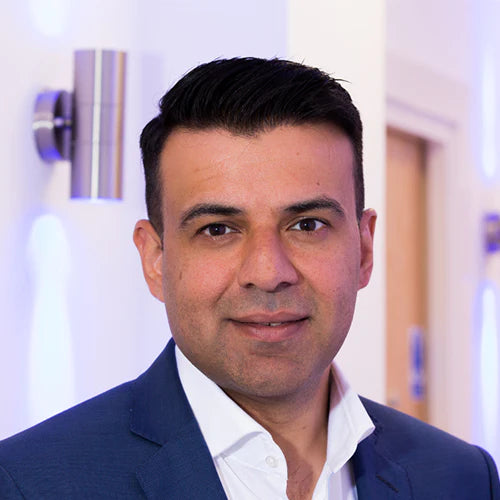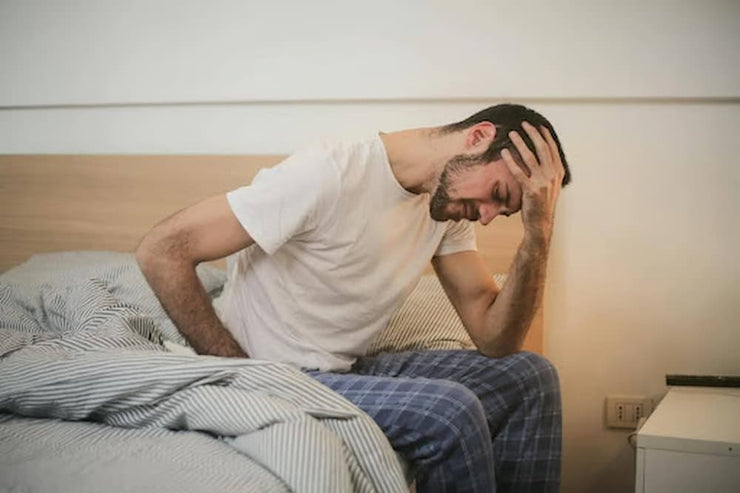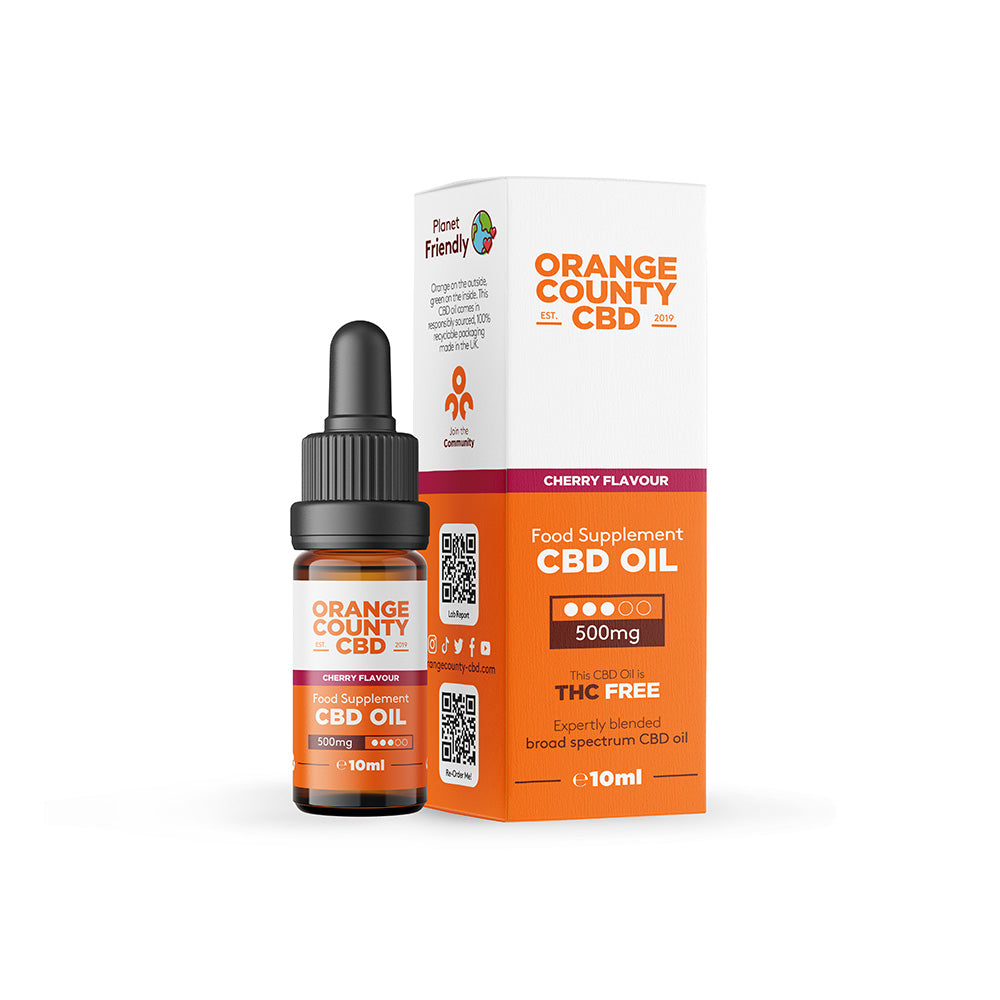When to Take CBD Oil for Sleep: Best Time and Dosage Tips


Roughly 1 in 5 people in the UK aren’t getting enough sleep. Whether it’s difficulty falling asleep, frequent waking, or a restless mind, sleep issues affect both mental and physical health. As a result, many turn to natural options for support - and CBD oil is one that’s gaining attention. Among the potential benefits of CBD oil, supporting better sleep is one of the most commonly reported.
Can CBD Help You Sleep?
The science behind CBD and sleep is still developing. Some studies show promising results, while others are less conclusive. Responses to CBD are personal, so you might need to try it yourself to see how it affects your sleep.
For example, in a 2019 case series of 72 patients with anxiety or sleep issues, 67% reported better sleep after using CBD daily for a month [3]. On the flip side, a 2018 controlled trial found no significant changes in sleep among healthy participants after taking 300mg of CBD [1].
That said, CBD appears to interact with the body’s endocannabinoid system in a way that supports relaxation. It may be especially helpful for those whose sleep troubles are linked to stress or anxiety.

Best Time to Take CBD Oil Before Bed
For sleep, timing matters. If you're using CBD oil under the tongue (sublingually), the typical onset time is 15 to 45 minutes. Taking it about 30–60 minutes before bed gives CBD time to start working by the time you're winding down.
If you're using CBD capsules or gummies, expect a longer onset — often 60 to 90 minutes, as these go through the digestive system.
How Much CBD Oil Should You Take for Sleep?
If you're new to CBD, start low and increase slowly. A typical beginner’s dose for sleep is 10–25mg of CBD about an hour before bed.
Most CBD oils list how much CBD is in each drop. For example, a 1000mg bottle with 10ml volume offers around 5mg per drop. You might start with 2 to 4 drops (10–20mg total), then adjust based on how your body responds.
Tips:
✅Start small and track your response for a few nights
✅Adjust gradually if you don’t feel effects after 3–5 days
✅Avoid very high doses unless advised by a professional
Can You Take CBD Oil Every Night?
For most people, yes — nightly use of CBD oil is considered safe. A 2019 study found that users tolerated daily use well, with very few side effects [3].
CBD is not known to cause next-day grogginess. In fact, one study confirmed that even a single 300mg dose did not impair morning alertness or cognitive function [1].
Still, potential side effects can include:
-
Mild fatigue
-
Dry mouth
-
Gastrointestinal changes
As with any supplement, check with a healthcare provider if you're taking other medications or have a medical condition.

What Type of CBD Works Best for Sleep?
Not all CBD is created equal. There are three main types:
-
Full-spectrum: Contains CBD plus small, legal levels of THC (under 0.2%), along with other cannabinoids and terpenes. Often considered most effective due to the “entourage effect.”
-
Broad-spectrum: THC-free, but still contains other cannabinoids and terpenes.
-
Isolate: Pure CBD with no other plant compounds. Best for those who want to avoid all trace cannabinoids.
For sleep, full-spectrum or broad-spectrum oils tend to be more popular. Many users report better results due to the combined calming effects.
Explore our range of CBD capsules and CBD oils to find a format that suits your routine.
Can You Mix CBD Oil with Other Sleep Aids?
Combining CBD with other sleep aids like melatonin is common and generally safe for most people. Some CBD products are even blended with melatonin to support sleep.
That said, combining CBD with medications like Nyquil or prescription sedatives could amplify sedative effects.
If you’re on any medication, particularly those for anxiety, sleep, or blood pressure, speak to your GP before adding CBD to your routine.
Choosing CBD Oil Suitable for Sleep
If you're looking to add CBD to your evening routine, choose a product from a reputable brand that offers clear lab results and dosing guidance.
Orange County CBD is a trusted UK brand known for high-quality oils and capsules. Whether you prefer fast-acting drops or convenient softgels, they offer options designed for bedtime use.
Research
[1] Source: No Acute Effects of Cannabidiol on the Sleep-Wake Cycle of Healthy Subjects (2018)
Summary: In a double-blind, placebo-controlled study involving 26 healthy adults, a single 300mg dose of CBD did not significantly affect sleep architecture, including total sleep time, REM sleep, or sleep onset latency. Cognitive and psychomotor function the next morning remained unchanged, and no residual sedation or grogginess was reported. These findings suggest that CBD does not disrupt normal sleep in healthy individuals, though its benefits may be more relevant in people with sleep disorders or heightened anxiety.
[2] Source: Cannabis, Cannabinoids, and Sleep: A Review of the Literature (2017)
Summary: This literature review highlights early evidence suggesting that CBD may help with insomnia, REM sleep behaviour disorder, and excessive daytime sleepiness. THC, in contrast, may shorten time to fall asleep but potentially harms long-term sleep quality. Synthetic cannabinoids like dronabinol and nabilone showed short-term promise for sleep apnoea and PTSD-related nightmares. Overall, findings are mixed, and the authors emphasise the need for more controlled and long-term human studies on cannabinoids and sleep disorders.
[3] Source: Cannabidiol in Anxiety and Sleep: A Large Case Series (2019)
Summary: In this real-world study of 72 psychiatric patients with anxiety or sleep disorders, 79% reported reduced anxiety and 67% reported improved sleep after one month of daily CBD use (mostly 25mg capsules). Improvements in anxiety were more stable over time than sleep improvements. CBD was generally well tolerated, with few mild side effects such as fatigue or dry eyes. While promising, the study lacked a control group, and most patients continued other treatments, limiting firm conclusions. Further controlled research is needed to confirm CBD's effectiveness.
health, wellness
